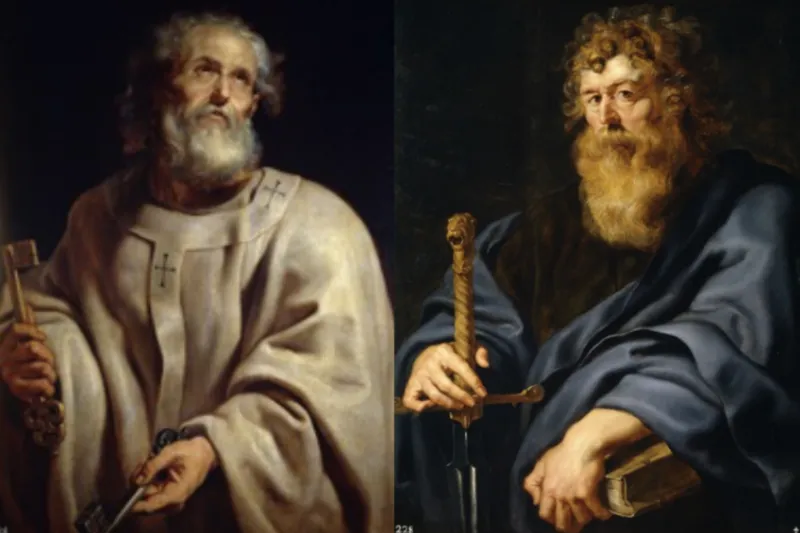
Denver Newsroom, Jun 29, 2021 / 06:45 am (CNA).
Written in the fifth century and translated into English by Anglican convert Fr. Ronald Knox, the celestial hymn “What Fairer Light?” is sung each June 29th on the solemnity of Saints Peter and Paul. The author may surprise students of philosophy and the great books: it is Elphis, the wife of Boethius.
Hailed a Saint in the Eastern Church, Boethius is author of The Consolation of Philosophy, considered by scholars to be one of the most important texts for the medieval period and required reading for any medieval student of philosophy or theology. Elphis, who also goes by Rusticiana, gets high praise from her husband in his book influential and popular book.
In some way, the Church takes up this praise of Elphis each Solemnity of St. Peter and Paul by recognizing the genius of her poetry and the inspiring vision she presents of the joint role of Rome’s most illustrious saints. Given the beauty of her hymn and its longevity in liturgy, we may ask which of the two, husband or wife, had a longer lasting and deeper impact on the Church.
Hymn for the Solemnity of Sts Peter and Paul
Elphis/Rusticiana, c 493, wife of Boethius c 477– 524
Translation: R A Knox, 1888-1957
What fairer light is this than time itself doth own,
The golden day with beams more radiant brightening?
The princes of God’s Church this feast day doth enthrone,
To sinners heavenward bound their burden lightening.
One taught mankind its creed, one guards the heavenly gate,
Founders of Rome, they bind the world in loyalty;
One by the sword achieved, one by the cross his fate;
With laurelled brows they hold eternal royalty.
Rejoice, O Rome, this day, thy walls they once did sign
With princely blood, who now their glory share with thee.
What city’s vesture glows with crimson deep as thine?
What beauty else has earth that may compare with thee?
To God the three in one eternal homage be,
All honour, all renown, all songs victorious,
Who rules both heaven and earth by one divine decree
To everlasting years in empire glorious.
If you value the news and views Catholic World Report provides, please consider donating to support our efforts. Your contribution will help us continue to make CWR available to all readers worldwide for free, without a subscription. Thank you for your generosity!
Click here for more information on donating to CWR. Click here to sign up for our newsletter.




Another website has the comment “Aurea luce, known since the revision of Pope Urban VIII as Decora lux aeternitatis, is traditionally ascribed to a fictitious first wife of Boethius named Elpis; in reality, it is the work of an unknown writer of the Carolingian era.” https://www.newliturgicalmovement.org/2021/06/the-vesper-hymn-of-ss-peter-and-paul.html Which is true?